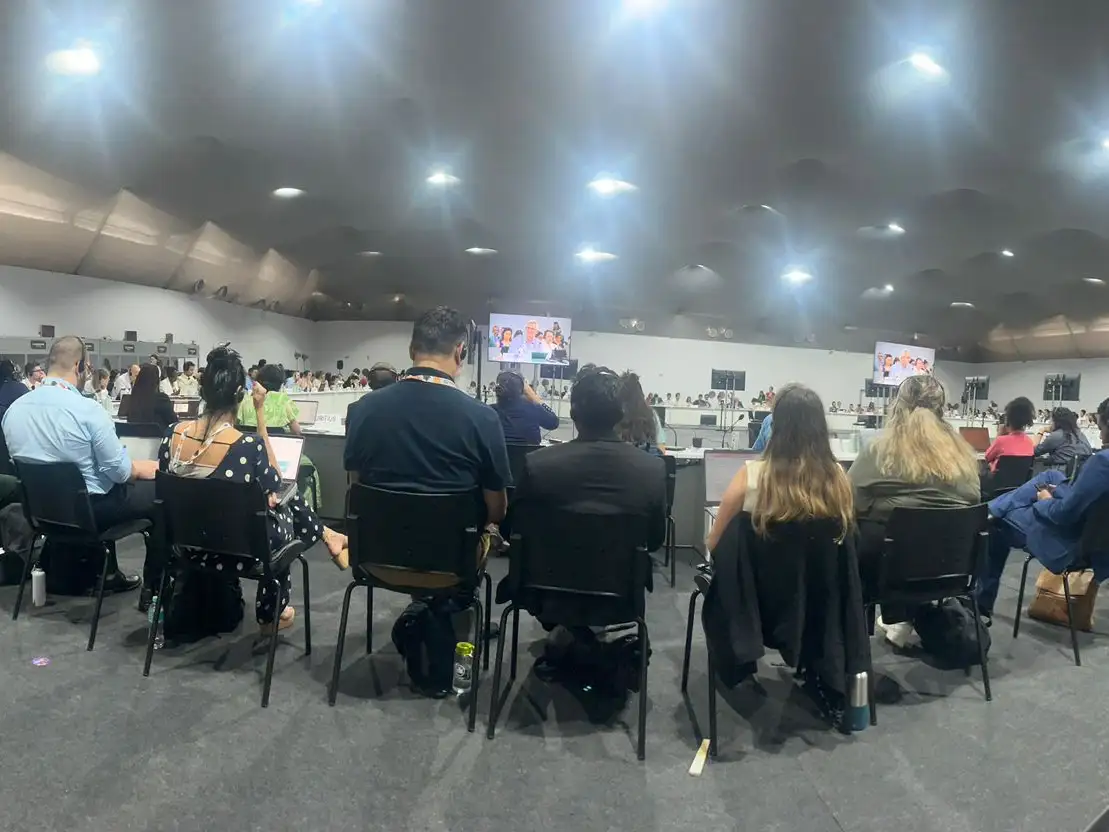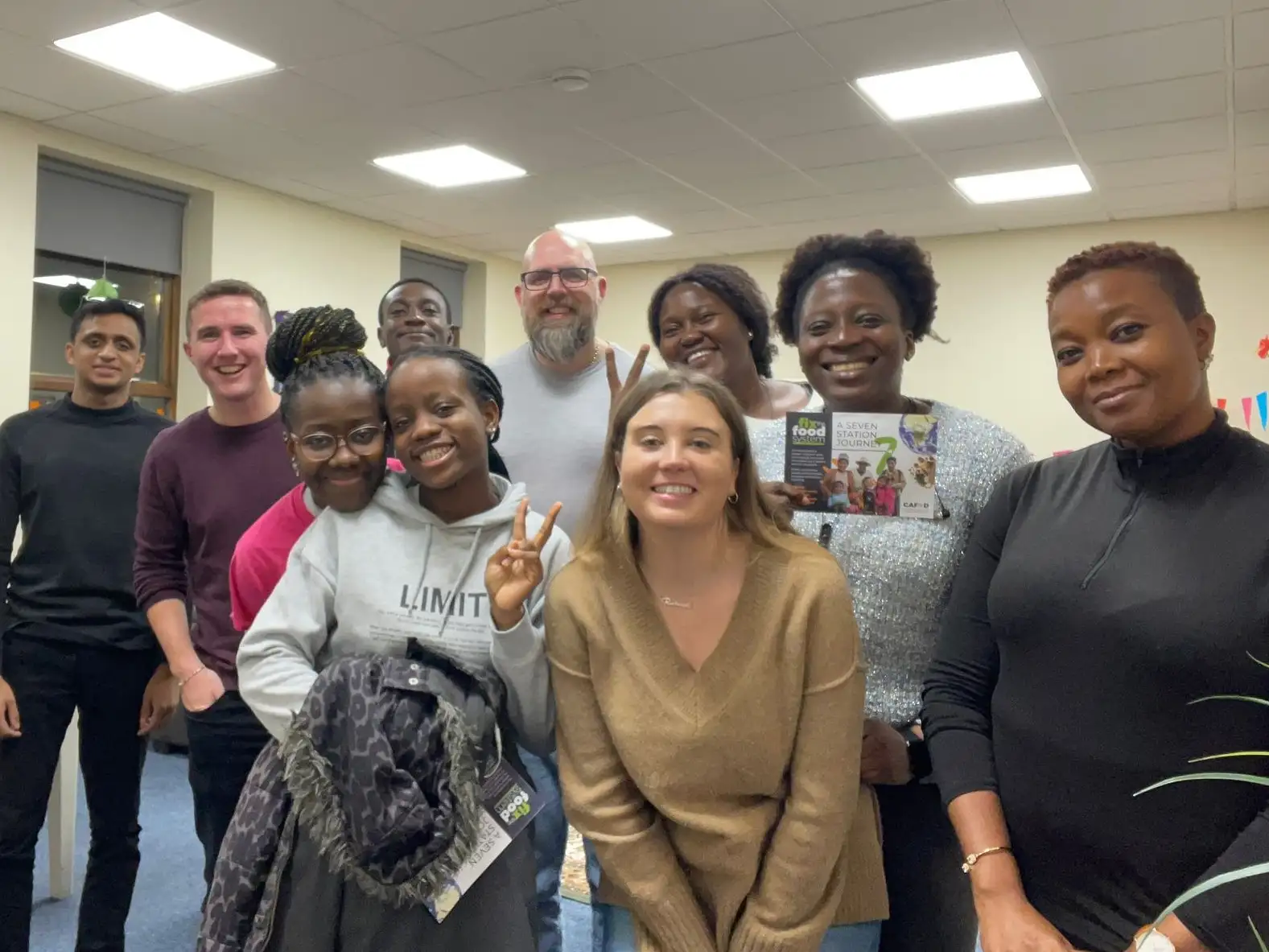

COP30 delegates gather in Brazil
COP30 has drawn to a close in Brazil with a final deal known as the Mutirão.
Hopes were very high ahead of the conference. It took place in Belém, the closest major city to the mouth of the Amazon, bringing huge symbolic significance to proceedings and enabling the voices of Indigenous Peoples to be more prominent than in recent years. Pope Leo implored the participants of COP30 to “commit themselves to protecting and caring for the creation entrusted to us by God in order to build a peaceful world”.
What was agreed at COP30?
Global South countries, civil society and academia all came together to call for urgent climate action including much more grant funding to help low-income countries adapt to the devastating impacts of climate change, and also to create a solid United Nations mechanism to ensure a just transition to a greener future.
On this second part, there was substantial progress. Our Climate Change Policy Lead, Liz Cronin, was there in Brazil and has reacted to the outcome: “The final Mutirão decision text, though not everything we had hoped, contains a very significant victory on a just transition implementation mechanism.” This is a plan or process for ensuring that the world can shift away from fossil fuels and towards a greener future in a fair and democratic way.
Liz Cronin continues: “This should be celebrated; it is a testament to the strength of civil society and developing countries, and what the multilateral COP process can achieve.”
Thank you to all CAFOD supporters who took action with us for COP30 – whether that was emailing the Energy Secretary, Ed Miliband, joining us for our webinar live from COP30, or coming to Manchester to pray with Bishop John Arnold for the success of the conference. All of these small actions make a difference, as we join our sisters and brothers around the world fighting for climate justice too.
What COP30 did not achieve
Of course, this COP has not delivered everything we wanted.
Far greater amounts of funding are needed to help local communities cope with the effects of climate change and prepare for the future. This funding needs to be in the form of grants, not loans, otherwise it just creates more debt for countries already struggling with huge debt burdens.
As we look ahead, Liz Cronin concludes:
“We take two important fights to COP31 in Turkey: developed countries finally delivering the non-debt creating finance climate-vulnerable countries need, and a uniting around the fossil fuel transition commitment that was hard-won two COPs ago. Without both, a 1.5°C world is out of reach.”

Receive campaign news by email
When we join together as the Catholic community we have a strong voice. Sign up to receive updates and stand alongside those facing poverty and injustice around the world.

